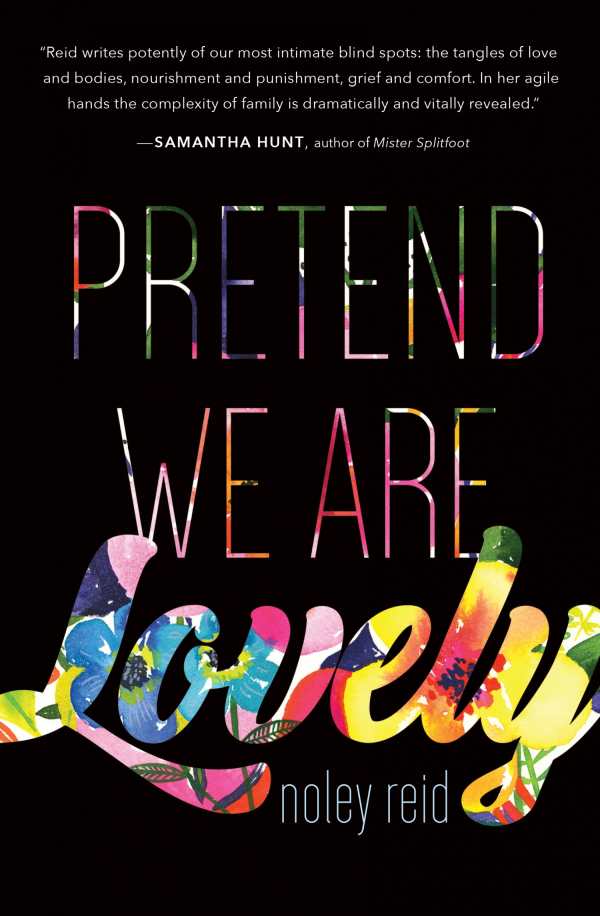Pretend We Are Lovely
Food becomes a vehicle for grief in this fascinating, sympathetic family story.
Macabre in its gastronomic obsession and sometimes hyperbolic, Noley Reid’s Pretend We are Lovely reveals a fascinating slide from self-punishment to tentative renewal.
In 1980s Virginia, the Sobels cope with their son’s death by turning toward gluttony and deprivation. Tate, Francie, and their daughters, Enid and Vivvy, can’t escape from the accident that changed their family. In an unusual portrayal of grief, food becomes everything but sustenance to them—a bargaining tool, a show of control, evidence of loose boundaries, and a way to form alliances. It is also a snapshot of the era’s vices, and a clever narrative strategy that threads each brief section together.
The girls circle Francie’s strict boundaries, which include never setting foot in their dead brother’s room. Tate struggles between his current life—separate from his family—and the ties that bring him back. Scene by scene, relationships expose estrangement rather than healing. The resulting collage powerfully juxtaposes voices to depict how mourning is often a solitary act.
The Sobel daughters navigate through their parents’ flawed marriage, Francie’s absence, Tate’s affair with a co-ed, and their newfound awareness of their bodies. Despite the dark theme of a mother’s eroding mental health, the book stays faithful to their natural, girlhood focus on themselves. From minor sibling rivalries to early explorations with sexuality, the book captures a laissez-faire world in which children must raise themselves. An especially apt scene features Enid and Vivvy mocking Francie’s mannerisms—without viciousness, and with the implicit knowledge that she might never return.
Francie’s unwillingness to leave the past takes dramatic swerves. Still, her character grows complex enough to avoid the grotesque. For all her distorted guilt, calorie counting, and cruel favoritism, a glimmer of the person she used to be appears in passages by Tate. The sharp dissonance between her view of herself and his creates a surprisingly tender commentary on how difficult it is to let go of ingrained habits. When enabling behaviors get thrown into the mix, it’s no surprise that the Sobels are suffering.
Without judgment, Pretend We Are Lovely examines how the Sobels discover a way out of pain by choosing to live—and eat—with each other.
Reviewed by
Karen Rigby
Disclosure: This article is not an endorsement, but a review. The publisher of this book provided free copies of the book to have their book reviewed by a professional reviewer. No fee was paid by the publisher for this review. Foreword Reviews only recommends books that we love. Foreword Magazine, Inc. is disclosing this in accordance with the Federal Trade Commission’s 16 CFR, Part 255.

